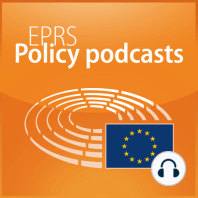7 min listen

Promoting European Culture
Promoting European Culture
ratings:
Length:
6 minutes
Released:
Jan 11, 2019
Format:
Podcast episode
Description
The concept of cultural diversity lies at the heart of the European project. Recent years have seen renewed interest in the sector's potential for promoting social cohesion, unity and tolerance, on the one hand, with continued recognition of its valuable economic role, on the other. There is a strong commitment at the EU level to ensure that culture is mainstreamed in all policy areas, with a special focus on the protection of cultural heritage and cultural diversity, which are key elements in cultural identity and expression. From the economic point of view, the cultural and creative sector, which employs 8.4 million people in the European Union, is dynamic and has a large potential for growth due to its diversity and scope for individual creative freedom. Yet the development of this potential is hampered by barriers, notably linguistic diversity, fragmentation and different financial mechanisms across the EU. The EU's cultural and creative industry also faces challenge from digital technologies and global competition, particularly from the United States' (US) audiovisual industry, and from US and Chinese diplomatic efforts to promote their cultural output. Under the Treaty on the Functioning of the European Union, the EU's role in the context of cultural policy is a supportive and complementary one, direct responsibility in the area being largely a matter for the individual Member States. Nevertheless, since 2014, these challenges have been addressed at the EU level, inter alia via the strengthening of the digital single market, which is essential for access to culture, the circulation of European cultural works, the fair remuneration of creators and fair competition. Since the economic crisis, additional funding has also been made available for the sector via the European Fund for Strategic Investment introduced by the Juncker Commission in 2015. As indicated in a 2017 European Commission communication on the role of culture and education, the synergies between the socio-economic aspects are to be enhanced. The European Year of Cultural Heritage in 2018 is to feed into a reflection and actions related to shared culture and history. These issues are addressed in the New European Agenda for Culture, while the new multiannual financial framework for 2021-2027 envisages increased funding for culture. This will also support efforts to combine artistic and technological skills, which are a prerequisite for artistic expression in the new digital environment.https://www.europarl.europa.eu/thinktank/en/document.html?reference=EPRS_BRI(2018)623555
Source: © European Union - EP
Source: © European Union - EP
Released:
Jan 11, 2019
Format:
Podcast episode
Titles in the series (100)
The new Erasmus+ programme by European Parliament - EPRS Policy podcasts